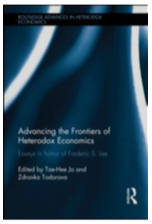Felipe Rezende
So S&P has downgraded Brazil’s rating on long-term foreign currency debt to junk and lowered its long-term local currency sovereign credit rating to ‘BBB-‘ from ‘BBB+’.
First, what are sovereign debt ratings? Standard & Poor’s sovereign rating is defined as follows:
A current opinion of the creditworthiness of a sovereign government, where creditworthiness encompasses likelihood of default and credit stability (and in some cases recovery).
So that ratings are related to “a sovereign’s ability and willingness to service financial obligations to nonofficial (commercial) creditors.”
What does this tell us? To begin with, credit rating agencies have repeatedly been wrong. The same agencies that rated Enron investment grade just weeks before it went bust, the same people that assigned triple A rating to toxic subprime mortgage-backed securities are now downgrading Brazil sovereign debt. As the FCIC report pointed out “The three credit rating agencies were key enablers of the financial meltdown. The mortgage-related securities at the heart of the crisis could not have been marketed and sold without their seal of approval.” (FCIC 2011)
Continue reading →
 Advancing the Frontiers of Heterodox Economics: Essays in Honor of Frederic S. Lee
Advancing the Frontiers of Heterodox Economics: Essays in Honor of Frederic S. Lee










